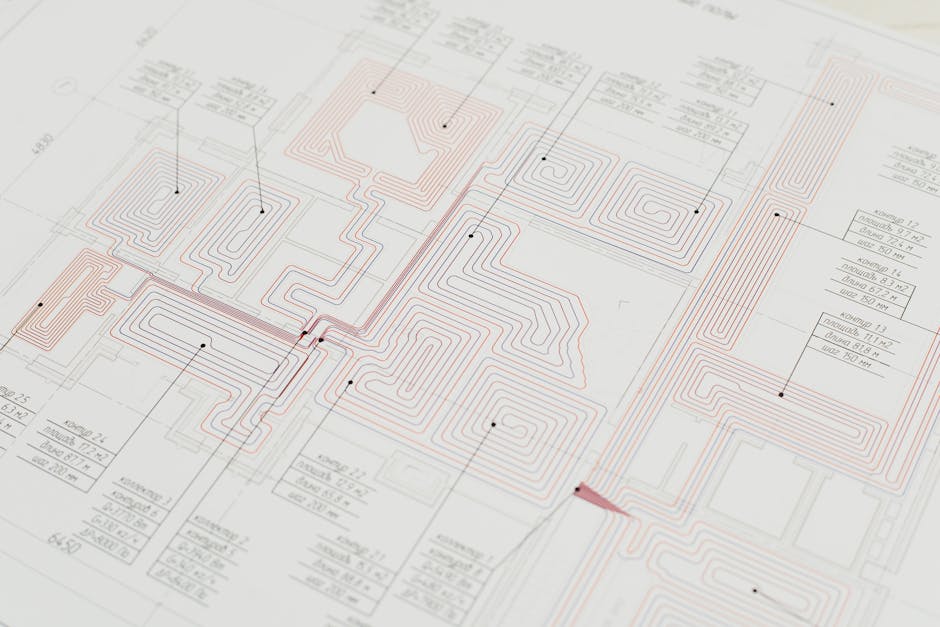Automating Recruitment Processes
Introduction: Transforming Talent Acquisition in Construction
Are GCC construction companies struggling to find skilled labor amidst booming infrastructure projects? The construction sector across the Gulf Cooperation Council is experiencing unprecedented growth, yet a significant talent shortage threatens to delay critical developments. Consequently, forward-thinking employers are turning to technology for solutions. Automating recruitment processes presents a powerful strategy to overcome these hiring challenges. This comprehensive approach streamlines talent acquisition from sourcing to onboarding. Moreover, it ensures companies can rapidly scale their workforce to meet project demands. Ultimately, this article will explore the multifaceted benefits of recruitment automation. You will discover how to reduce time-to-hire, improve candidate quality, and achieve substantial cost savings. Furthermore, we will examine practical implementation strategies tailored for the GCC construction industry.
The Critical Need for Automation in GCC Construction Recruitment
GCC construction faces a unique set of hiring challenges. Projects are often large-scale, remote, and require highly specialized skills. Additionally, the reliance on expatriate labor adds layers of visa and compliance complexity. Traditional manual recruitment methods simply cannot keep pace. Therefore, automation becomes not just beneficial but essential. It addresses the urgent need for speed and efficiency in hiring. Meanwhile, it maintains strict adherence to local labor regulations. For example, the UAE Ministry of Human Resources and Emiratisation has specific mandates that automated systems can help enforce. Thus, embracing technology is a strategic imperative for sustainable growth.
Key Benefits of Automating Recruitment Processes
Implementing automated recruitment systems delivers transformative advantages. These benefits directly address the pain points of construction employers in the region.
Dramatically Reduce Time-to-Hire for Urgent Projects
Construction projects operate on tight deadlines. Consequently, delays in hiring can cause costly project setbacks. Automated recruitment processes slash time-to-hire by over 50%. They instantly parse hundreds of resumes, identify qualified candidates, and schedule interviews automatically. This speed ensures that critical roles are filled before they impact project timelines. Furthermore, it improves the candidate experience by providing timely updates.
Achieve Significant Cost Savings on Hiring
Manual recruitment consumes substantial resources. Automating recruitment processes reduces advertising costs, agency fees, and administrative overhead. For instance, companies can reallocate resources from repetitive tasks to strategic initiatives. Additionally, faster hiring reduces the financial impact of vacant positions. A study by the Society for Human Resource Management found automation can cut cost-per-hire by up to 30%. This saving is crucial in the margin-sensitive construction industry.
Enhance Quality of Hire and Reduce Turnover
Finding candidates with the right skills and cultural fit is challenging. Automated systems use data-driven matching to identify the best applicants. They analyze qualifications, experience, and even potential for long-term retention. This precision leads to higher quality hires who perform better and stay longer. Reduced turnover is particularly valuable in construction, where project continuity is paramount.
Streamline Compliance and Documentation Management
GCC construction hiring involves complex documentation. Work permits, visa processing, and safety certifications require meticulous attention. Automation ensures all documents are collected, verified, and stored correctly. It can also flag expiring certifications for renewal. This vigilance minimizes compliance risks and avoids potential legal issues. Moreover, it creates a clear audit trail for regulatory inspections.
Improve Candidate Sourcing and Talent Pool Building
Automated tools actively source candidates from multiple channels. They scour online databases, social media, and previous applicant pools. This proactive approach builds a rich talent pipeline for future needs. Additionally, it helps maintain relationships with passive candidates. When a new project launches, companies can quickly engage pre-vetted talent. This readiness provides a significant competitive advantage.
Enable Data-Driven Recruitment Decisions
Automation provides valuable analytics on recruitment metrics. Employers can track source effectiveness, time-to-fill, and quality-of-hire data. These insights inform better hiring strategies over time. For example, if certain job boards yield better candidates, resources can be focused there. This continuous improvement optimizes the entire recruitment lifecycle. According to Harvard Business Review, data-driven companies are 3x more likely to report significant improvement in decision-making.
Implementing Automation: Practical Steps for Construction Employers
Successfully automating recruitment processes requires careful planning. Follow these steps to ensure a smooth transition and maximum ROI.
Assess Current Processes and Identify Pain Points
Begin by mapping your existing recruitment workflow. Identify bottlenecks, delays, and areas with high administrative burden. Common issues include resume screening, interview scheduling, and compliance checks. Prioritize automating these high-impact areas first. This targeted approach delivers quick wins and builds momentum for broader implementation.
Select the Right Recruitment Automation Tools
Choose technology that addresses your specific needs. Look for features like resume parsing, candidate tracking, and compliance management. Ensure the platform can handle the unique requirements of construction roles. For instance, it should accommodate technical skills assessments and certification tracking. Additionally, verify integration capabilities with your existing HR systems. Many providers offer customized solutions for the construction sector.
Integrate Automation with GCC Localization Requirements
The GCC region has specific labor laws and cultural considerations. Your automated system must accommodate these requirements. This includes support for Arabic language, local visa processes, and Emiratisation initiatives. Work with providers who have experience in the Middle East market. They will understand how to configure systems for regional compliance. Furthermore, ensure data storage complies with local data protection regulations.
Train Your Team and Manage Change Effectively
Technology implementation requires people adaptation. Provide comprehensive training for HR staff and hiring managers. Emphasize how automation makes their jobs easier rather than replacing them. Address concerns about technology adoption and demonstrate the benefits clearly. Change management is critical for gaining buy-in and ensuring successful utilization. Additionally, establish clear protocols for handling exceptions that may require human intervention.
Monitor, Measure, and Continuously Optimize
After implementation, track key performance indicators. Monitor metrics like time-to-fill, cost-per-hire, and candidate satisfaction. Use these insights to refine your processes continually. Additionally, solicit feedback from hiring managers and candidates. This continuous improvement ensures your automated recruitment processes deliver maximum value over time. Remember that technology should evolve with your changing business needs.
Overcoming Challenges in Recruitment Automation
While benefits are substantial, implementation may face obstacles. Awareness and preparation can mitigate these challenges effectively.
Addressing Technological Resistance in Traditional Industries
Construction has historically been slow to adopt new technologies. Some stakeholders may prefer traditional hiring methods. Overcome this resistance by demonstrating clear ROI and ease of use. Start with pilot programs in less critical roles to build confidence. Share success stories from other construction companies in the region. This evidence can persuade skeptical team members to embrace automation.
Ensuring Data Privacy and Security Compliance
Candidate data contains sensitive personal information. Automated systems must protect this data rigorously. Choose vendors with strong security certifications and compliance frameworks. Additionally, ensure they understand GCC data protection requirements. Implement access controls so only authorized personnel can view sensitive information. Regular security audits should be part of your maintenance routine. The National Cybersecurity Center UAE provides guidelines for data protection best practices.
Maintaining Human Touch in Automated Processes
Automation should enhance, not replace, human interaction. Candidates still value personal communication throughout the hiring process. Use automation for administrative tasks but maintain human contact for interviews and negotiations. Set up systems to trigger personal follow-ups at key stages. This balanced approach ensures efficiency without sacrificing candidate experience. Remember that technology serves to augment human capabilities, not eliminate them.
The Future of Automated Recruitment in GCC Construction
Technology continues to evolve, offering new possibilities for recruitment automation. Emerging trends will further transform how construction companies hire talent.
Artificial Intelligence and Predictive Analytics
AI will play an increasingly significant role in recruitment. Predictive analytics can forecast hiring needs based on project pipelines. Machine learning algorithms will improve candidate matching accuracy. Additionally, AI-powered chatbots can handle initial candidate queries 24/7. These advancements will make recruitment even more efficient and proactive. Companies that adopt these early will gain competitive advantage in talent acquisition.
Integration with Project Management Systems
Future systems will seamlessly integrate recruitment with project management. When a new project is approved, the system will automatically generate hiring plans. It will identify required roles, skills, and timelines. This integration ensures workforce planning aligns directly with project requirements. It represents a holistic approach to resource management in construction. Furthermore, it enables more accurate budgeting and scheduling from the outset.
Mobile-First Recruitment Strategies
Mobile technology adoption is extremely high across the GCC region. Future recruitment automation will prioritize mobile experiences. This includes mobile-optimized applications, text-based updates, and video interviewing. For construction roles, which may not involve desk work, mobile access is particularly important. Candidates can apply and communicate easily from any location. This accessibility expands the potential talent pool significantly. Research from McKinsey & Company shows mobile-first companies achieve higher application conversion rates.
FAQ: Automating Recruitment Processes for Construction
What is recruitment process automation?
Recruitment process automation uses technology to streamline and automate hiring tasks. It includes resume screening, interview scheduling, communication, and onboarding. This approach significantly reduces manual effort while improving efficiency and consistency.
How does automating recruitment processes reduce costs?
Automation reduces advertising spend, agency fees, and administrative costs. It decreases time-to-hire, reducing revenue loss from vacant positions. Additionally, it improves retention, lowering recurring hiring expenses.
Can automation handle GCC-specific compliance requirements?
Yes, modern recruitment automation platforms can be configured for GCC compliance. They manage visa documentation, labor contracts, and Emiratisation requirements. Additionally, they stay updated with changing regional regulations.
What roles in construction benefit most from recruitment automation?
High-volume roles like laborers, technicians, and engineers benefit significantly. Additionally, specialized positions requiring specific certifications see improved matching. Executive roles still benefit from automated scheduling and communication.
How long does implementation take?
Basic automation can be implemented in 4-8 weeks. Comprehensive systems with full integration may take 3-6 months. Timeline depends on complexity and customization requirements.
Will automation eliminate HR jobs?
No, automation reallocates HR resources from administrative tasks to strategic activities. Professionals focus on candidate engagement, employer branding, and retention strategies. This shift adds more value to the organization.
Conclusion: Building Your Automated Recruitment Future
In conclusion, automating recruitment processes delivers transformative benefits for GCC construction employers. It addresses critical challenges of speed, cost, compliance, and quality simultaneously. The construction industry’s unique hiring needs make automation particularly valuable. Companies that embrace this technology gain significant competitive advantage in talent acquisition. Furthermore, they future-proof their recruitment against increasing market demands. Finally, the journey toward automation requires careful planning but delivers substantial returns. To summarize, now is the time to transform your hiring practices through intelligent automation.
Ready to revolutionize your construction company’s recruitment? Explore our comprehensive Resources for detailed guides and insights. Alternatively, Contact Us directly for personalized consultation. For immediate assistance, Book an Appointment with our HR automation specialists today.




